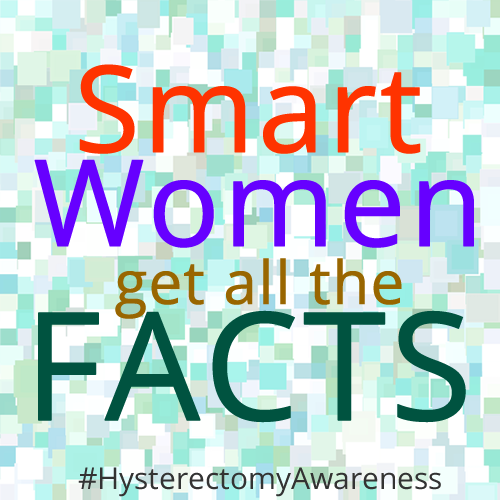Can you really have a menopause at 25?
You are 25 years old and you have severe fibroids, you have a hysterectomy to cure the problem. The hysterectomy removes your womb and cervix; thank goodness you think, no more periods or cervical smears.
Then you get to 30 and you are getting hot flushes (and not just from passion), a dry vagina, you don’t want your partner, you are moody, you are weepy. Were you warned that this would happen? Have you had these symptoms and been told that you were imagining them? What sort of information did you get from you GP or hospital? Have you had regular blood tests to monitor the levels of oestrogen in your blood?
Are you aware that you are probably going through the menopause? The menopause at 30 you think, but my ovaries were left intact, they weren’t removed and they should be continuing to work right up until I’m 50 (or thereabouts) shouldn’t they?
In fact 1 in every 4 women who has a hysterectomy which leaves their ovaries in position will go through an early menopause within 5 years of their operation. Many women are aware of the issues concerning menopause, that our natural protection against heart disease wears off leaving us with the same incidence as men, that somehow oestrogen production is linked with osteoporosis and this causes many of the problems with fractures that older women can suffer. What they don’t realise when they have a hysterectomy at a young age is that they may have to face these facts within months or just a few years.
The earlier you have your menopause, the earlier you will begin to experience problems such as those above and others associated with ageing. All women need to be aware of the potential risk of an early menopause when they have a hysterectomy, even if they keep their ovaries; and they need to understand what that may mean for their life in later years so that they can take adequate measures to safeguard their health.
If a woman has a complete hysterectomy she should be offered hormone replacement therapy, in one form or another, from the outset. She may need a variety specifically for those who cannot take oestrogen based products. She may also choose not to take it and there are many ways to help yourself without taking HRT. But it’s only with the right information that the right information the right choice can be made.
Make sure you know the longer term effects of the surgery you are having and be prepared for any eventuality.







